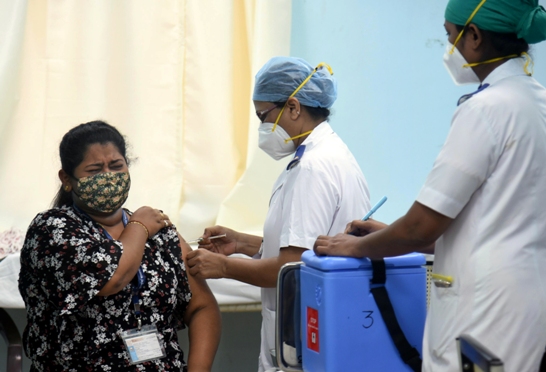India’s vaccine diplomacy: Global goodwill at the cost of public health?
India is earning goodwill by providing COVID vaccines to several countries. But is it only a win-win deal? Some vaccine producers have already raised concerns over shortage of raw materials
By Kalyani Shankar
India’s vaccine diplomacy is steaming ahead with the country earning some brownie points, especially vis-à-vis China that is also providing vaccines to various countries. However, it is still to unfold whether this will turn out to be a win-win situation for India.
Recently, during the first Quad leaders’ meeting, US, Japan and Australian leaders decided to help India produce at least one billion vaccine doses. US President Joe Biden, Australian PM Scott Morrison, Japanese PM Yoshihide Suga and India’s PM Narendra Modi met virtually on March 12.
The Quad initiative aims to reduce manufacturing backlogs, speed vaccination and defeat some coronavirus mutations. The funding would be from the US and Japan and logistical help from Australia.
The South Block claims that India has now become a “vaccine superpower” in tackling the COVID-19 crisis. New Delhi has not only managed to thwart China’s COVID diplomacy but also overtaken it. According to the United Nations, India has made more vaccine donations than China, with over eight million doses given away, compared to 7.3 million from China. Both are making vaccines for the rest of the world in addition to their vast populations.
Chinese premier Xi Jinping has called Chinese medical supplies to the ‘Health Silk Road’, part of China’s ambitious Belt and Road Initiative. According to the Chinese Foreign Ministry, it plans to provide free vaccines to 69 countries and sell them to 28 countries. India, too, has adopted ‘Vaccine Maitri’ as part of its larger diplomatic outreach.
External Affairs Minister S. Jaishankar said India has supplied 150 nations with medicines, 82 of them as grants by India. Strained ties with neighbouring countries including Nepal, Bangladesh, the Maldives and Sri Lanka have improved after the vaccine supply. Indicating the importance, Sri Lanka and Dominica’s leaders personally received Indian-made vaccines at the airport, and the Mongolian prime minister took the Indian vaccine.
All these were possible because of India’s massive pharmaceutical industry accounts for about 20% of the world’s generic medicines and more than 60% of all global vaccine production. The capacity was acquired and augmented over the decades after Independence.
However, there are some concerns about the vaccine diplomacy in some quarters. The first is whether India will meet the demand, and the second is whether the vaccine diplomacy is taking place at the expense of its people? For now, India’s own inoculation rate has been slow.
The opposition has criticized the government over the slow vaccination saying that at the current speed, it would take India more than 12 years to vaccinate 70% of its population.
The Serum Institute of India (SII), which produces Covishield and Novavax vaccines, recently raised concerns about raw material shortages. Its chief executive, Adar Poonawalla said, “The sharing of these raw materials are going to become a critical limiting factor…nobody has been able to address this so far.”
Another Indian manufacturer, Biological E., which produces the Johnson and Johnson vaccine, has also raised similar concerns.
The other worry is that the country is lagging behind its target. With its 1.35 billion population, India accounts for 10 million-plus infections and 153,000 deaths. It has administered 29.74 million doses as of March 15. However, the rising number of variants and a second surge of COVID in states including Maharashtra, Madhya Pradesh and Kerala is causing worries. However, there is optimism that other vaccines in the pipeline might ease this burden.
-IPA Service


